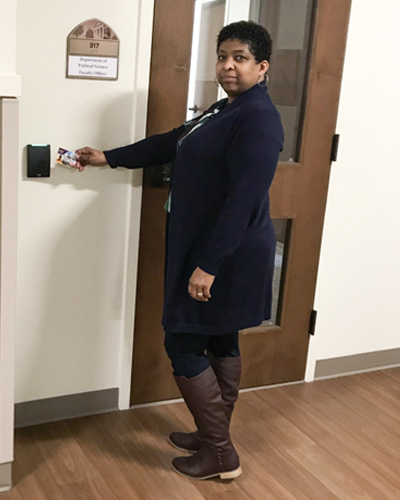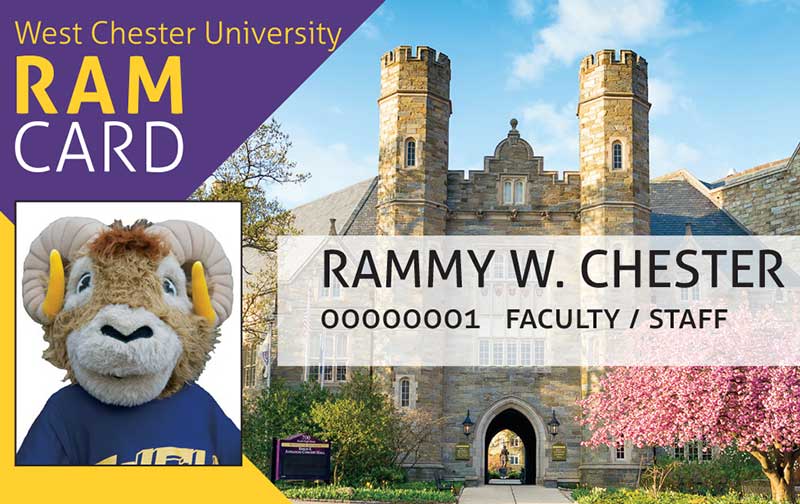RAM Card, Your Key to Everything at WCU
Information Services & Technology is partnering with the Department of Public Safety on a 3-year project to transition from its current aging card access system to a system that uses contactless technology (HID SEOS encryption). Using a phased approach, the current system will be systematically replaced all while preserving, and in some cases enhancing, current card capabilities.

This technology will offer many benefits to the WCU community including:
- Improved security of access & card technology on campus
- Enhanced operational efficiency by standardizing card technology; and
- Ability to consider future enhanced uses of the card and integration of the RAM Card for use in other systems
The project team is excited to introduce the new RAM Card - a new name, a new design and new improved technology! The RAM Card is a contactless card with an embedded chip which transmits when it is held within a few inches of the card reader. The new RAM Card will continue to have a magnetic stripe on the back and will continue to support all current swipe applications (RAM Bucks, Flex, Meal Plans, and RamPrint). Anderson Hall is the first building to be brought online with the new card system, therefore, new RAM Cards were distributed first to key support personnel with building access needs to the building as well as faculty and staff with office space in Anderson Hall. Following shortly thereafter cards will be distributed to all faculty/staff and then finally students. There will be no charge/cost for new RAM Cards issued as part of this conversion project.
Over the span of three years the project will replace existing card reader hardware in all academic and administrative buildings including the Graduate Center and the Exton nursing location as well as all residence halls (both traditional and USH). Once Anderson Hall is completed, the installation focus will shift to buildings which only allow for the “green proxy cards” such as the Business and Public Management Center, Mitchell Hall, Wayne Hall and Student Health Services in Commonwealth Hall. These buildings as well as the traditional residence halls should be completed by the end of summer 2019.
The project team is also tasked with upgrading, replacing and converging the existing Public Safety network infrastructure into WCU’s enterprise campus network backbone which will allow IS&T to support the Public Safety network more easily.

This is a Public Safety project; however, the project team is cross-functional with executive sponsors Deke Kassabian, Zeb Davenport and John Villella; project owners Jon Brill, Interim Director of Public Safety and Chief of Police, and Frank Piscitello. Student Services, Inc. is a trusted partner and Bob Landwersiek’s team in the Card Office will produce the RAM Cards. Since the project launched in May 2018, the project team has met and communicated with a large stakeholder group of about 50 staff from across campus. Integral to the project are contributors referred to as SME’s (Subject Matter Experts) such as IS&T team members Rashed Kabir, Kevin Partridge, Shaun Spence and Danielle Zimmerman who set up virtual servers, assisted with the installation of the new software and the PeopleSoft integration with Atrium and the new C-Cure software.
For more information about the project, please visit the RAM Card Website.
RAMS Up!
